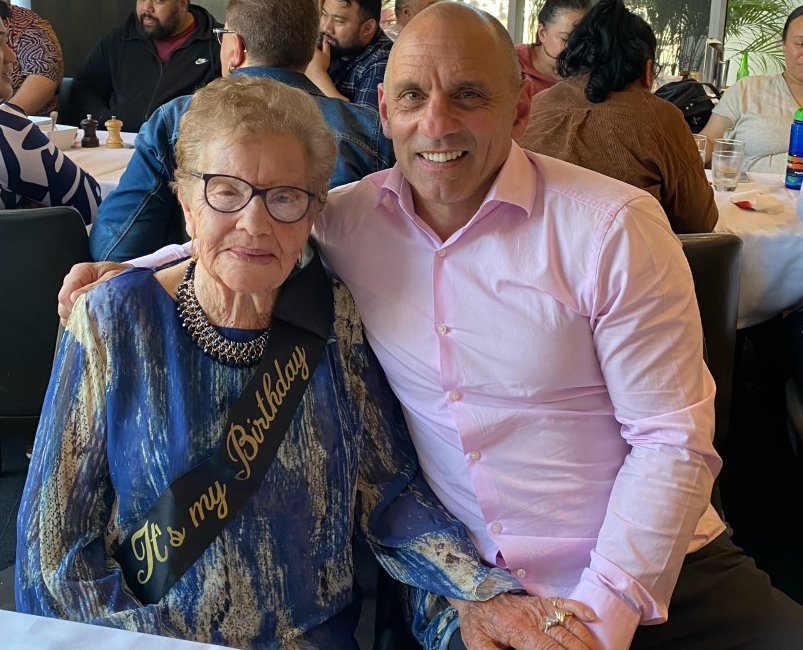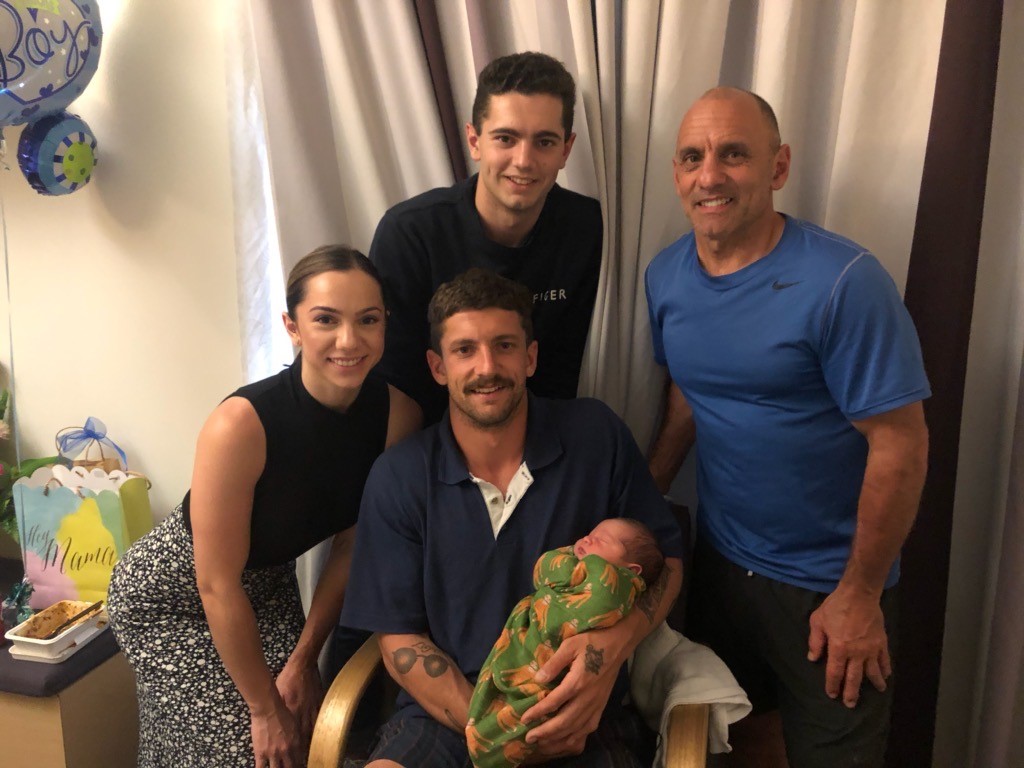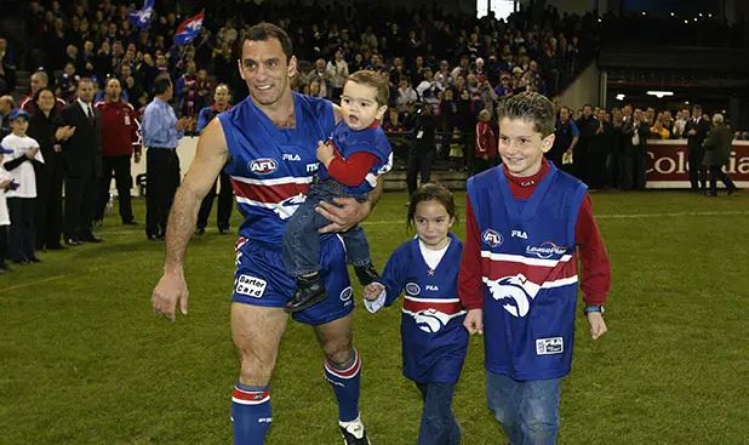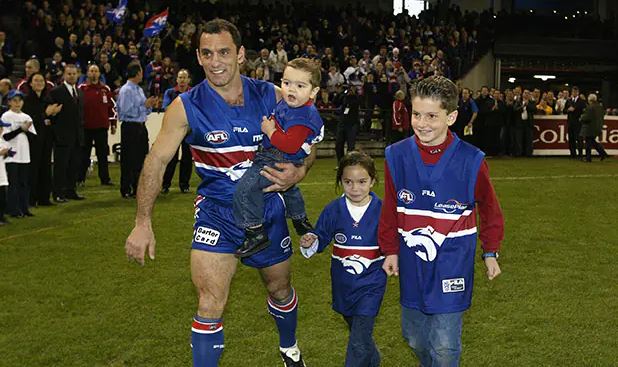“My mother is my heroine,” Tony Liberatore often reiterates when he remembers his parents.
Throughout the course of his career, however, he rarely spoke about them, despite the fact that he dedicated every single goal he scored to them.
His parents, both originally from Abruzzo, have always been his reference points. His father Tullio came from Rivisondoli and his mother Maria, from Pescocostanzo.
The parents of the former Footscray star met in Italy. After his father's arrival in Australia and subsequent confinement in the Bonegilla camp for almost a year, his mother joined him, and they married the following year, in 1955.
“My mother Maria's story is actually quite incredible,” he said.
“She lost her parents when she was very young and was brought up in a convent. Unlike my father, she comes from a very large family. Only one of her sisters – Olga – migrated to Australia with her. They are still very close, and meet up often to chat and keep each other company.”
Both hard workers, after first settling in Collingwood, and then in Brunswick West, Mr and Mrs Liberatore had four children. The youngest, Tony, and his twin brother Fred (Alfredo) were born in 1966.

Tony Liberatore with his Mother, Maria. (Photo provided)
Liberatore's childhood was a happy one. There were endless afternoons spent in the park with his brother and cousins playing Australia’s most beloved sport: footy.
“We used to pretend we were the big players of the day. After a few years, I joined a local footy team and then moved on to the Brunswick team when I was about nine years old,” Tony recalled, smiling.
From a young age, the Liberatore twins showed promising talent with the oval ball, and everyone knew they were fast and not afraid to get into the thick of the action.
Fred, however, later took up bodybuilding, a passion he still maintains to this day, while Tony continued with footy, joining North Melbourne when he was about nineteen.
“My parents used to come and watch me play, and it was during those games that my mother started to learn English, because she was very vocal when she was cheering. My father, on the other hand, was more reserved,” said the former player.

Tony (right) with his twin brother Fred. (Photo provided)
Despite his unyielding passion for the sport, Liberatore still remembers his rejection from many clubs, and criticisms regarding his height:
“Sometimes it made me sad because a lot of people told me that I had no future, but I liked the game too much, so I continued stubbornly. One day, I decided to call the Footscray team, and they gave me the opportunity to play for them.”
Thus began his love for those colours and that club, which not only gave him confidence but also allowed him to become recognised as one of the best players of his time. This was made official when he was awarded the coveted Brownlow Medal in 1990, cementing him as one of AFL's finest and strongest players.
Liberatore played for Footscray (or the Western Bulldogs, after the club's name change in the late 1990s) for about 15 years, distinguishing himself over those 283 games. The former player is proud of his career because, beyond his important achievements on the field, he managed to build genuine friendships, many of which have lasted for more than 30 years.
With his sunny disposition, Tony has always managed to overlook the racism that he and many fellow countrymen have unfortunately experienced.
“Of course, my physical appearance, being short with dark curly hair, didn't help me,” joked Tony.
“But at the same time, I never gave it too much importance: maybe I was too busy playing and improving my performance to notice comments like that.”
He recalled, for example, that Tony Lockett, a very talented player, once called him a “wog”. But that comment didn’t particularly hurt him.
Neither did an incident that happened when he was only 12 years old, but stuck in his mind:
During a local game, a gentleman who was cheering for the opposing team shouted ‘wog’ at him for the duration of the game. Still unaware of the prejudices that people are capable of, Tony turned to his coach to find out what the meaning of the word was. He told him not to worry about it because it meant that he was a good player and was doing a great job. This little trick saved him from worrying about it for several years.
Apart from these veiled episodes, his footy memories are mostly happy ones. Among those he cherishes most, of course, is being awarded the Brownlow Medal:
"It gave me so much satisfaction, especially after all those years of being told I was too short and would never have a career in football.”
He also fondly recalls a team photo from 1996 when, coincidentally, the squad was made up of players from all kinds of nationalities: Italians, Chileans, Indians, Irish and many others.
"That photo is incredible because it fully represents what Australian multiculturalism is: something that makes this nation unique and deeply enriching.”
Yet the most significant memories are not related to sport but to his family and, in particular, to his children.
You can hear the emotion in his voice when he talks about his daughter Meg's work achievements, or when he describes those of his son, Tom, a star player for the Western Bulldogs:
“He's about 30 years old and has played almost 200 games. Looking back on his career, I'm very proud of him. In 2016 the Bulldogs won the premiership: we hadn't won it since 1954.
“He was instrumental in achieving that and it was exciting because I've never been able to achieve that either; we came close in 1998, but we didn't make it. I consider myself very lucky because it's as though I have an extension of myself who’s still in the team and through whom I can relive certain emotions,” Tony explained.

The former player with his children Meg, Oliver and Tom, holding little Oscar. (Photo provided)
Finally, he joyfully recounted his son Oliver's recent trip to Italy, where he visited not only historical landmarks but also sentimentally important ones, like his family's respective hometowns, where several relatives still live.
"It was funny because we called each other one evening when I was visiting my mother. There he was, on the other side of the world, with my aunt who looks so much like her sister. We were all eating pizzelle and looked like the same couple of people - one in Italy and one in Australia.”
“The last time I went back to the Bel Paese was in 2016,” Liberatore concluded.
“It was a fantastic trip and one that has stayed with me. Of course, Rome is beautiful; Florence, too, but I think the places where one's family comes from are always incomparable. Meeting the people your parents grew up with, sharing precious memories with them, these are the experiences that really remain in your heart.”











